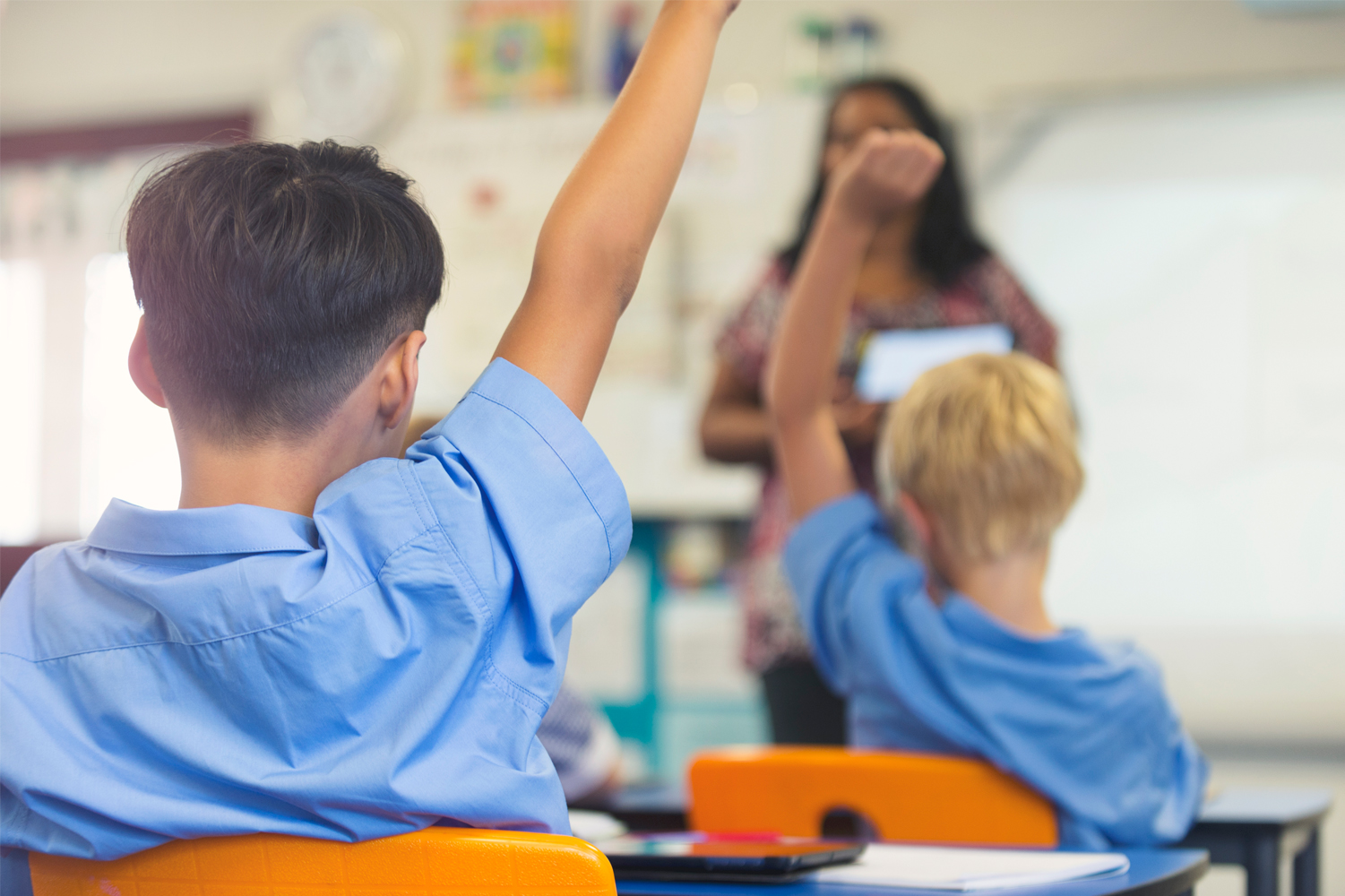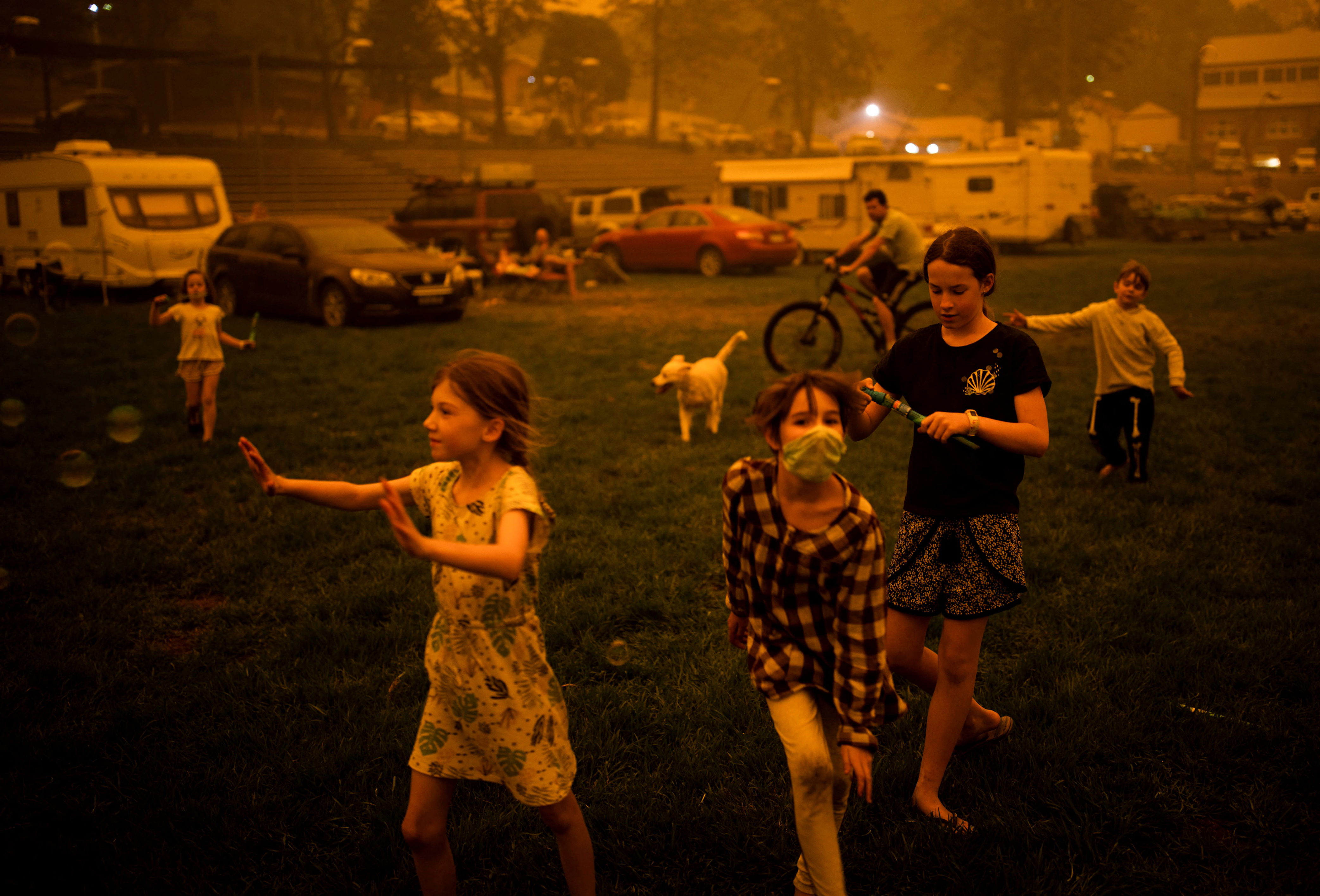Climate Change Curriculum Fight Sparks Backlash in Australia

Climate change is said to be scaring young children in Australia, and a leading expert has come up with a controversial solution — don’t tell them about it. “It's really difficult to see kids who are very fearful at such young ages in front of me who have sleep disorders, who have clinical ranges of anxiety over this,” psychologist Clare Rowe told Yahoo News.
She’s the author of a controversial report published by conservative think-tank the Institute of Public Affairs (IPA), which argues climate change should not be taught to primary school children. In response, 150 experts in mental health, medicine and education have published an open letter rejecting this claim, arguing that what's actually scaring children is their lived experience of environmental disasters, the failure of government to act, and adults not listening to their concerns.
There's no doubt that climate and the environment are worrying Aussie kids — a 2024 survey of 15 to 19-year-olds found it's their greatest concern after cost of living, with one in four respondents concerned about the issue.
One of the signatories of the open letter, the University of Tasmania’s Dr Chloe Lucas, runs workshops that answer questions from school children about climate change. She argues kids “don’t live in a vacuum” and regularly absorb information from social media, the news, and their peers, so they need to have access to fact-based educators so they feel empowered.
“ Climate change is part of public discourse, I don’t think they can hide from it,” she told Yahoo.
“When I go into schools and talk to children, I’m told about them having to evacuate their homes because of a flood , or losing their house in a bushfire . Children will experience seven times more extreme weather events on average than their grandparents. We’re living in a different world, and it’s getting worse.”

Call for kids to be shielded from climate change
The vast majority of scientists agree that humans are causing climate change. But when it comes to how it will impact the next generation, Rowe doesn’t feel equipped to answer.
“It would be absolutely stepping outside of my remit as a psychologist and I would encourage every other psychologist to do the same and stick to our lane,” she said.
Unlike her critics, she argues kids aren’t absorbing information about climate change through social media and friends. “When we're talking about six, seven and eight-year-olds, it's what they're taught at school that's making them alarmed. They're not getting it elsewhere, not at that age,” she said.
The children Rowe treats in her clinic have presented with fear that they won’t reach adulthood because they fear the world will be destroyed by climate change. She claims a primary reason for their distress is that the problem appears beyond their control, as they’re being told to use less electricity, not ride in the family car, and to eat less meat.
“These are not empowered, hopeful minds. If we want to solve the issue of climate change. We are not creating young people who are motivated to do it,” she said.
They are anxious and they are paralysed by despair. With children of that age, it is appropriate to shield them from that information.”
Death and illness are also difficult topics taught in schools
The open letter has been signed by experts from the Black Dog Institute and universities and hospitals around the country. They agree that climate education must be improved because it is “inconsistent” and not solutions-focused. But they argue “safe” teaching is necessary and can be gradually introduced during primary and secondary school.
“Yes, climate change is confronting, but so are topics like death or illness, and we don’t shield children from those,” the letter states.
“There is strong evidence that children, even in primary school, are capable of engaging with complex topics when supported by honest, developmentally appropriate teaching."
-
Details in satellite photos spark 'worrying' prediction about colony of thousands
-
Aussie kid's clever driveway idea raises $1,600 for critical cause
-
Grim underwater find prompts calls to make $43.9 million change in Victorian waters
Georgia Monaghan is a signatory to the letter and is the co-founder of ECOMIND, a company that aims to promote “emotional resilience” in children in the face of climate change.
She doesn’t believe climate change denial has the same traction it once did. Instead, she believes there’s a push to “disempower” the public by removing knowledge and education about the subject.
“We’re seeing that particularly in the United States. Fossil fuel companies feel threatened by young voices, and so if you remove their education, you’re stopping them from doing amazing work,” she said.
She argues climate distress is a “very rational response” to the “crisis” and that young people need to feel equipped to tackle the problem.
“We need psychologically safe, developmentally appropriate climate science that empowers and creates hope in young people. We have a lot of difficult things happening in the world right now, and the answer is not to just ignore them,” she said.
Love Australia's weird and wonderful environment? 🐊🦘😳 Get our new newsletter showcasing the week’s best stories.
 This article originally appeared on Yahoo News Australia at
https://au.news.yahoo.com/backlash-over-call-to-pull-climate-change-from-aussie-school-curiculum-063444218.html
This article originally appeared on Yahoo News Australia at
https://au.news.yahoo.com/backlash-over-call-to-pull-climate-change-from-aussie-school-curiculum-063444218.html
Comments
Post a Comment